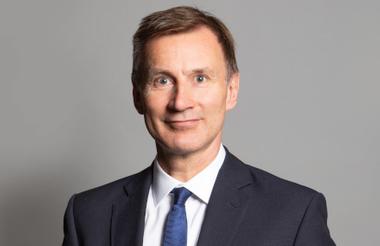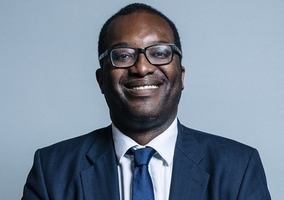Leaders in the charity sector have said that plans outlined by the government today do not go far enough to help charities deal with the cost-of-living crisis and high inflation.
Chancellor Jeremy Hunt delivered the autumn budget this morning, nearly two months after his predecessor’s “mini-budget”.
Hunt had already reversed tax cuts unveiled by his former chancellor Kwasi Kwarteng in September which he called “risky” and “unfounded”.
The chancellor today confirmed that the government will continue to support households and businesses with their energy bills through a £55m funding package.
However, he said that the scale of government support will be lower and targeted at those most affected.
From April 2023, the current Energy Price Guarantee will increase from £2,500 per year to £3,000 for the average household.
Meanwhile, the findings of the review of the Energy Bill Relief Scheme are expected to be published by the end of the year.
Hunt said that he has “no objection to windfall taxes if they are genuinely about windfall profits caused by unexpected increases in energy prices” as long as these are temporary, do not deter investment and recognise the cyclical nature of energy businesses.
He announced that from 1 January 2023, the rate of the Energy Profits Levy will rise from 25% to 35% to ensure oil and gas companies pay their fair share. This, coupled with a new, temporary 45% levy on electricity generators, will generate £14bn next year.
He also confirmed that the employers’ national insurance contributions (NICs) threshold will be maintained until April 2028 and that 40% of employers will still be exempted from NICs.
In a separate document, the government said that following consultation, it decided to not introduce an online sales tax. “The government’s decision reflects concerns raised about an OST’s complexity and the risk of creating unintended distortion or unfair outcomes between different business models. A response to the OST consultation will be published shortly,” it wrote.
On the overseas aid budget, Hunt said that it will not be possible for the government to increase the current UK’s official development assistance (ODA) from 0.5% of Gross National Income (GNI) to 0.7% until fiscal rules have been met.
CAF: No support for charities
Neil Heslop, chief executive of the Charities Aid Foundation (CAF), said: “Charities are at the frontline of the cost-of-living crisis helping those most in need – providing warm places, food packages, mental health services, and support for the homeless. So it’s disappointing that the chancellor did not mention any support for charities.
“These organisations are under severe financial strain, facing soaring energy bills, declining income as people cut back, but significantly rising demand for their services. Charities must be at the centre of any continued energy support from April and need to know where they stand.”
Echoing his comments, Richard Bray, chair of the Charity Tax Group (CTG), said: “The support that charities give to all parts of society, particularly at a local level, is critical to many people, but charities also need support in these challenging times. It’s worrying that there was no recognition in the chancellor’s statement of the role played by charities and yet demands on their services continue to rise at a time when donors have less disposable income. CTG will continue to argue that the tax system needs positive change to support the work of charities.”
He added: “It’s welcome that there was no increase in VAT, but freezing the registration threshold will result in more charities being subject to VAT. CTG calls on the government to provide important support to the sector by introducing a special reduced VAT rate on their purchases, allowing them to do more with their hard-earned resources.”
ACEVO: How much more demand can charities absorb?
Jane Ide, chief executive of the Association of Chief Executives of Voluntary Organisations (ACEVO), said that there was “little in today’s statement that will make a real difference to hundreds and thousands of households who are already turning to foodbanks and other charities in order to survive day to day”.
She added: “Meanwhile, expectation of efficiency savings and no real terms inflationary increase in funding for local authorities and other public spending will inevitably mean continued pressure on civic services – whether that is a further reduction in already badly creaking children’s services, reductions in opening hours of libraries and community centres that provide a warm space and community connection for isolated or vulnerable people, or the withdrawal of after school services for young people at risk of falling into crime. Despite the chancellor’s aims to showcase British compassion, more people will fall through the cracks, and more people will turn to charities for the support they desperately need.
“Across our sector, charities will be continuing to raise their concerns about the impact of the cost-of-living crisis on the people they serve. They will continue to try to deliver that desperately needed support. But they will be wondering how much more demand they can absorb, and what happens when even the safety net our sector provides can cope no more.”
NCVO: Charities cannot be taken for granted
Sarah Vibert, chief executive officer of the National Council for Voluntary Organisations (NCVO) said today’s statement “sets out a sobering picture for the economy in the next few years”. “Through not rectifying the impact of austerity over the past decade and not addressing the root causes of food and fuel poverty, the measures announced today will lead to poorer outcomes and widening inequalities in communities. This is combined with a commitment to further squeeze public services, which will have a devastating impact on people, communities, and the voluntary sector.”
She continued: “There is a wealth of evidence which demonstrates the power of investing in communities, not least for driving economic growth and reducing regional inequality. This has not been fully acknowledged and human wellbeing is not being prioritised. We’re therefore calling for the government to urgently undertake and publish an equality impact assessment into these measures before implementation.
“Although uprating some benefits in line with inflation next spring will be a lifeline for many people, it will not come soon enough to prevent people facing poverty this winter. And who will be expected to pick up the slack? Charities and volunteers. The voluntary sector is a critical part of social infrastructure and has been essential in supporting society through recent crises. From preventing isolation and helping vaccinate millions of people against covid-19, to setting up ‘warm hubs’ and relentlessly gathering food to distribute to people who otherwise would go hungry this winter.
“I know that NCVO members have been asking themselves if we’re letting government off the hook this winter, by stepping up and plugging the gaps in underfunded public services. Clearly charities are not going to walk away from communities at a time of need. But they cannot be taken for granted. NCVO members are making really tough decisions about what they can and cannot do. Many were forced to spend reserves to survive the pandemic and are now on the verge of buckling under the compounding pressures of increased demand, skyrocketing operational costs, eroding income, and challenges recruiting staff and volunteers.”
NPC: Still no details on energy support beyond April
Leah Davis, head of policy at New Philanthropy Capital (NPC), said: “As expected, austerity is back. We can be glad that charities have won their campaign to increase benefits in line with inflation, but public funding is down in real terms; people will be paying more tax; and, for those not receiving benefits, energy bills are rising again from April, without any additional funding for insulation schemes to bring down bills until 2025.
“Charities should take time to digest what the combined effect of these changes will be on the people they serve. We could see big increases in the number of people needing their services, not just now but over the long term. We face a recession next year combined with high levels of inflation over several years. New groups of people may start turning to charities, such as people who don’t receive benefits but are still on low incomes. And charities are still waiting to hear what support they’ll get for their energy bills past April.
“Funders should be responding to all of this on at least at the scale of the pandemic response, and immediately.”
Pro Bono: Charity income will drop
Matt Whittaker, chief executive officer of Pro Bono Economics, said: “With the country now in recession, living standards are set for the biggest hit on record. Surging inflation, spiralling borrowing costs and rising unemployment mean household budgets will come under severe strain. As has been the case throughout the cost-of-living-crisis, the demand for charity support will be substantial.
“The government has taken important steps to protect the most vulnerable in the chancellor’s autumn statement, but benefit uprating will not kick in until the spring and timelines for additional payments are still unclear. Charity demand is already rocketing and will only intensify as we head into winter. Given the enormous pressure on public spending and household budgets, charity income will inevitably dip as people have less to give and government funds are stretched.”
BOND: Government must urgently increase UK aid
Simon Starling, director of policy, advocacy, and research at Bond, commented: “The chancellor has ruled out restoring UK aid to 0.7% GNI, breaking the Conservative manifesto commitment. We hope the chancellor’s reference to a budget of ‘around 0.5% ’ reflects an intention to increase UK aid above the artificial ceiling, which would be welcome.
“Marginalised communities facing climate change, conflict and poverty need to see a clear commitment from the UK government that it will deliver on its promises and demonstrate ‘compassion, dignity and fairness’. Additional resources to cover the costs of hosting refugees in the UK is welcome, but the government must urgently increase UK aid and begin a return to 0.7%.”
Energy organisations: ‘Many vulnerable people are now at acute risk of being left out in the cold’
Adam Scorer, chief executive of National Energy Action (NEA), said: “Changes to the Energy Price Guarantee mean that the breathing space for households struggling with energy costs will now be shorter lived and less helpful. An average bill of £3,000 from spring is an increase of 40% from current record levels given that the government has ceased the support currently provided by the Energy Bill Support Scheme, yet energy bills are up by a staggering 130%. Sadly, this means there is now no end in sight to the energy crisis for struggling households. For most, it looks as if it will get even harder.”
Simon Francis, co-ordinator of the End Fuel Poverty Coalition, accused the government of condemning “seven million households to suffer in fuel poverty this winter”. “The rise in the energy price cap from April next year could see this figure increase to 8.6 million households,” he said.
“We’re already seeing the horrific impact of living in cold damp homes on children, the elderly, disabled and those with illnesses ranging from cancer to asthma. Even with the additional funding pledged to the NHS and social care system today, we’re deeply concerned that it will be overwhelmed by the energy bills crisis and millions will suffer.”
Related articles












